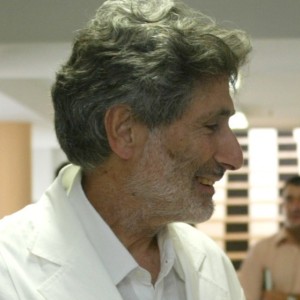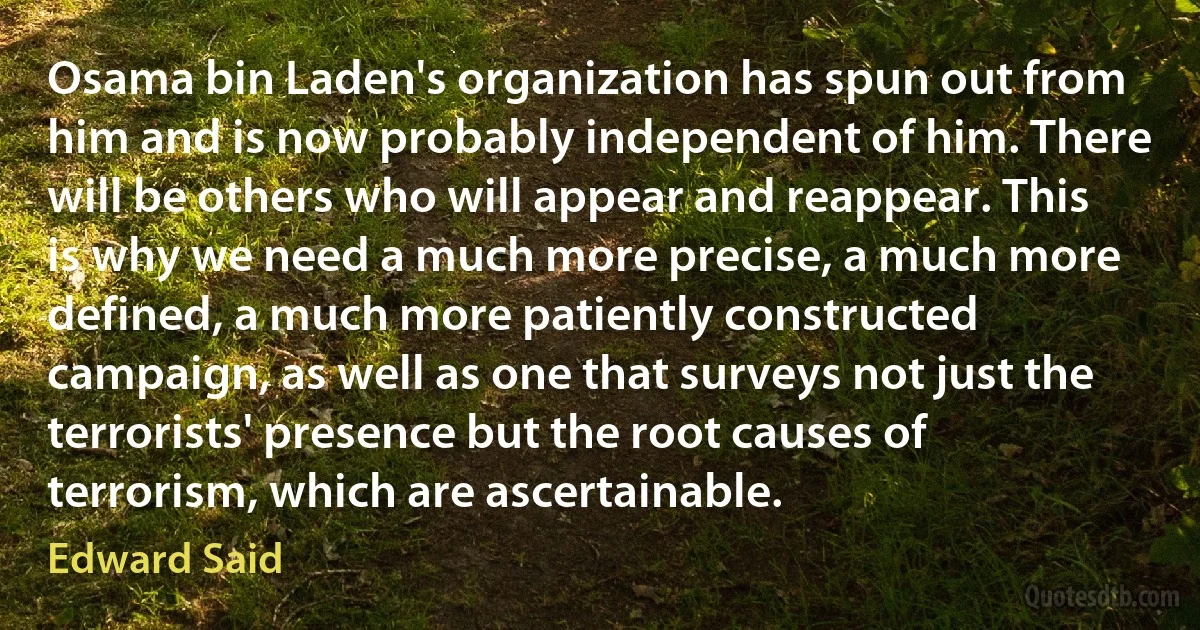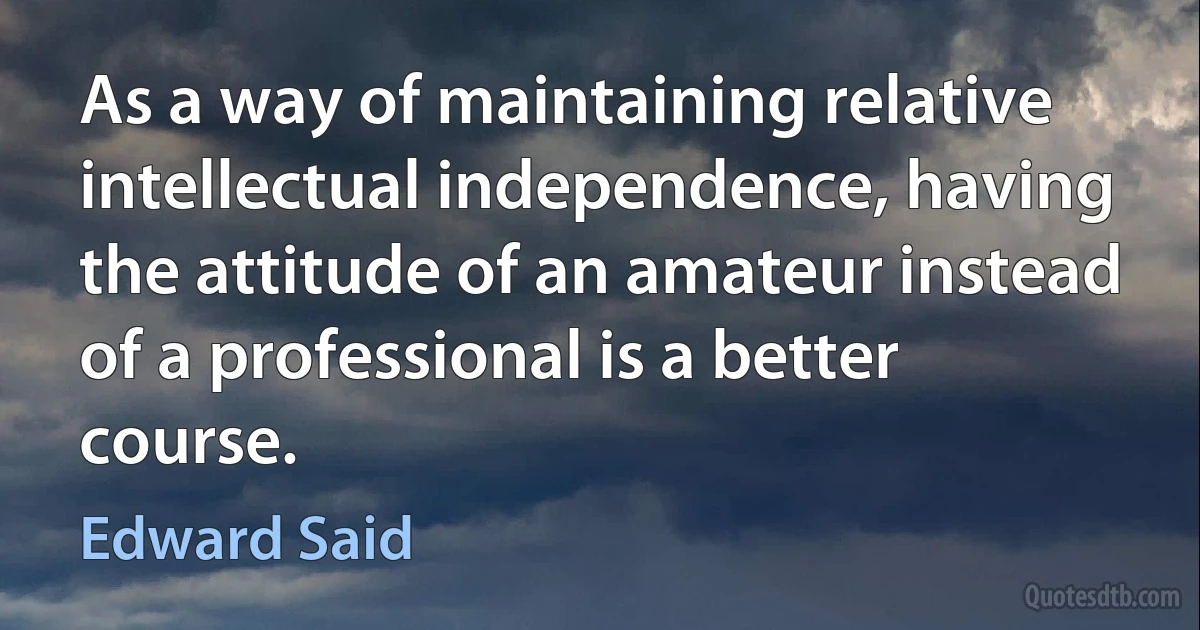Edward Said quotes - page 3
Edward Said was a Palestinian-American scholar, literary critic, and public intellectual, best known for his work on postcolonial theory. His influential book "Orientalism" challenged Western perceptions of the East and reshaped fields such as literary studies and cultural criticism. He is remembered for advocating Palestinian rights and for his profound impact on intellectual thought worldwide. Here are 75 of his quotes:
Captain Ahab was a man possessed with an obsessional drive to pursue the white whale which had harmed him - which had torn his leg out - to the ends of the Earth, no matter what happened. In the final scene of the novel, Captain Ahab is being borne out to sea, wrapped around the white whale with the rope of his own harpoon and going obviously to his death. It was a scene of almost suicidal finality.

Edward Said
It [destroying Twin Towers] was a leap into another realm - the realm of crazy abstractions and mythological generalities, involving people who have hijacked Islam for their own purposes. It's important not to fall into that trap and to try to respond with a metaphysical retaliation of some sort.

Edward Said
There is also this great sense of triumphalism, that just as we defeated the Soviet Union, we can do this. And out of this sense of desperation and pathological religion, there develops an all-encompassing drive to harm and hurt, without regard for the innocent and the uninvolved, which was the case in New York.

Edward Said
A historian of science is not expected to be a scientist, but he is expected to have some basic knowledge of the scientific alphabet. Similarly, a historian of Orientalism-that is to say, the work of historians and philologists-should have at least some acquaintance with the history and philology with which they were concerned.

Edward Said
The intellectual's spirit as an amateur can enter and transform the merely professional routine most of us go through into something much more lively and radical; instead of doing what one is supposed to do one can ask why one does it, who benefits from it, how can it reconnect with a personal project and original thoughts.

Edward Said
Everything I have written in these lectures underlines the importance to the intellectual of passionate engagement, risk, exposure, commitment to principles, vulnerability in debating and being involved in worldly causes. For example, the difference I drew earlier between a professional and an amateur intellectual rests precisely on this, that the professional claims detachment on the basis of a profession and pretends to objectivity, whereas the amateur is moved neither by reward nor by the fulfillment of an immediate career plan but by a committed engagement with ideas and values in the public sphere.

Edward Said
Lewis was an Orientalist before Edward Said made that a term of abuse. Said was not a scholar of the Middle East, but a polemicist from the Middle East. He was also an intellectual impostor. Ever since Orientalism came out in 1978, proper historians have concluded that it would be a masterpiece, if only it were true. The only people who take Edward Said's books seriously are, in no particular order of irrelevance, academic poseurs, chippy lefties, and the legions of chippy academic lefty poseurs churned out by the departments of Middle Eastern Studies.

Edward Said
Edward Said
 Occupation: Palestinian Writer
Occupation: Palestinian Writer
Born: November 1, 1935
Died: September 25, 2003
Quotes count: 75
Wikipedia: Edward Said
![This [9/11 event] was bloody-minded destruction for no other reason than to do it. Note that there was no claim for these attacks. There were no demands. There were no statements. It was a silent piece of terror. This was part of nothing. (Edward Said)](https://cdn.quotesdtb.com/img/quotes_images_webp/37/edward-said-claim-destruction-811437.webp)












